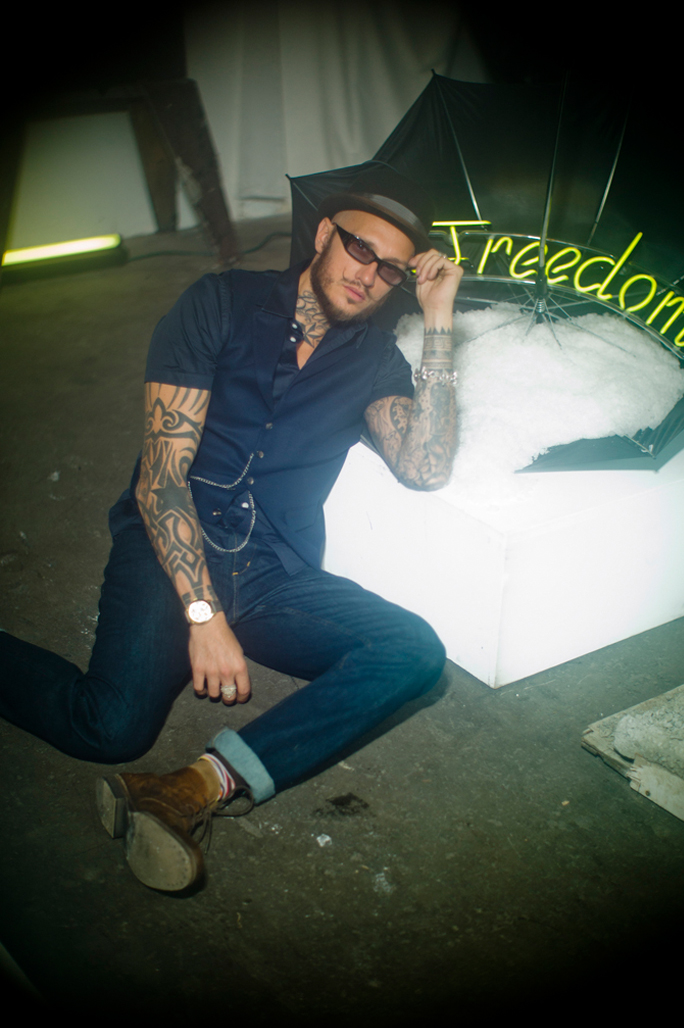
ASM: It is paradoxical that although you use tar to forever preserve a piece on the inside, it is changed on the outside. Does your work make a statement about what happens when you observe, touch, or interact with things?
MB: That is a very good question but I am not sure of the best way to answer it. I would say I just like the idea of taking and preserving something that existed with importance and meaning at a point in our lives but not so much in the present because we trashed it or do not think about it anymore. Case in point is the teddy bear - everyone had a teddy bear at one point. That tiny toy is so important that as kids that we gave everything to it. I remember at some point, after five years, my teddy disappeared. It has happened to a lot of us when to comes to certain meaningful items from our childhood. In a sense you destroy the outer look of the object with tar but what you see is the object and what is being preserved on the inside are the memories that differs from person to person and that it is important.
___
ASM: That is amazing! So by changing, you breakdown the barriers between people by obscuring the peculiarities of the objects.
MB: Exactly!
ASM: I am sure you have gotten a few questions about oil since tar is similar to it. Oil is an issue globally from here, to Africa... Do you have any thoughts on this?
MB: Of course I do because how can I not? It is my personal belief that it is a shame what we do to our environment and ourselves. I try to be environmentally conscious of the fact that I am using tar and the politics behind a lot of these materials. I do feel guilty because I am part of that for I drive a car, ride a bike or travel on a plane. It is like hate and love; I am a part of the cause though I do not want to be. So I pray with everyone that things change. I never want to be specific when it comes to my work - it just happens because it is more intuitive. It is up to the individual and how he or she reads the piece. However, when I look back at what I have created, I am stunned by it.
ASM: To know that you are working on a concept that maybe dangerously close to something out there. What does it take to maintain that distance?
MB: This may sound weird but I really try to live in my own bubble. Back home in Italy despite how beautiful it is, there is consistent feeling of sadness and negativity due to the politics, the not-so-good weather, and more. I do not want that feeling around me, so I try to avoid as much as I can. The media does not give anything positive. It is either silly reality shows or news about murder. Of course I catch a little news and I am touched by the stories; but I do not follow because I am a very sensitive person. I have to be careful about what I absorb because I can get very sad for a couple of days over things I cannot help resolve or change. In turn, I affect those around me and I do not want that. So in a sense, I try to protect myself.
ASM: There seems to be something more when you use tar - a material so permanent. Is there something transcendent when you work with tar? Is there something that takes you away from those things?
MB: When I make a piece of art that is the only moment I do not think about anything. In my head I am debating with myself on the piece being worked on and I am judging myself. For some reason, when I make a piece of art, I am at peace and I am really able to focus on it. It is like a trance; I do not think ahead-I am in the moment. Of course, when I wanted want to give a specific message about spirituality, I used the religious iconography to do so. Right now I am working on the cultural idea of superstition because I am trying to find freedom from that. In Italy there is a lot of superstition such as “not going under a ladder” or “not opening up a black umbrella” that has caused me to put a lot of barriers in my life. So now, I am done with that and want to move on. Thus the first thing I did despite objections was open thirteen umbrellas and then went on to conquer the ladder superstition.
ASM: Where is the line for you? What delineates the superstition from the powerfully religious?
MB:I just feel that we create so many barriers in our lives. Therefore, I feel that a lot of the do’s and don’ts come from people. Saying God does not want us under a ladder because it forms the trinity makes absolutely no sense. I have my own personal relationship with Him so I do not pay attention anymore. There are more important things to think about. Of course the more obvious commandments make more sense.
ASM: Do you see yourself having any exhibitions in Africa?
MB:I would love to - especially now that I am working with different mediums outside of tar such as clay. I am not familiar with the African cultures but I have seen photos of huts made of clay. I would love to go there and experience it. Now that I am working on Italian superstitions, I would love to know about African superstitions as well. It is definitely something I would love to explore.